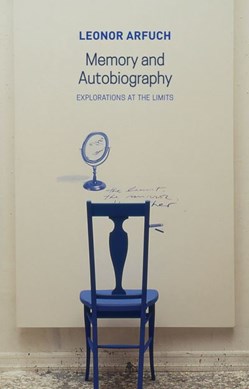-
BROWSE 1000s OF BOOKS IN STOCK
-
FREE DELIVERY ON ORDERS OVER €10
Memory and autobiography
PAPERBACK
Series: See all books in this series
Categories:
Reference and general
This book by one of Latin America's leading cultural theorists examines the place of the subject and the role of biographical and autobiographical genres in contemporary culture. Arfuch argues that the on-going proliferation of private and intimate stories - what she calls the 'biographical space' - can be seen as symptomatic of the impersonalizing dynamics of contemporary times. Autobiographical genres, however, harbour an intersubjective dimension. The 'I' who speaks wants to be heard by another, and the other who listens discovers in autobiography possible points of identification. Autobiographical genres, including those that border on fiction, therefore become spaces in which the singularity of experience opens onto the collective and its historicity in ways that allow us to reflect on the ethical, political, and aesthetic dimensions not only of self-representation but also of life itself. Opening up debate through juxtaposition and dialogue, Arfuch's own poetic writing moves freely from the Holocaust to Argentina's last dictatorship and its traumatic memories, and then to the troubled borderlands between Mexico and the United States to show how artists rescue shards of memory that would otherwise be relegated to the dustbin of history. In so doing, she makes us see not only how challenging it is to represent past traumas and violence but also how vitally necessary it is to do so as a political strategy for combating the tides of forgetting and for finding ways of being in common.
€23.19

69 Reward Points
In stock online
Extended Range: Delivery in 2-3 working days
Extended Range: Delivery in 2-3 working days
Free Delivery on this item
Any purchases for more than €10 are eligible for free delivery anywhere in the UK or Ireland!
This book by one of Latin America's leading cultural theorists examines the place of the subject and the role of biographical and autobiographical genres in contemporary culture. Arfuch argues that the on-going proliferation of private and intimate stories - what she calls the 'biographical space' - can be seen as symptomatic of the impersonalizing dynamics of contemporary times. Autobiographical genres, however, harbour an intersubjective dimension. The 'I' who speaks wants to be heard by another, and the other who listens discovers in autobiography possible points of identification. Autobiographical genres, including those that border on fiction, therefore become spaces in which the singularity of experience opens onto the collective and its historicity in ways that allow us to reflect on the ethical, political, and aesthetic dimensions not only of self-representation but also of life itself. Opening up debate through juxtaposition and dialogue, Arfuch's own poetic writing moves freely from the Holocaust to Argentina's last dictatorship and its traumatic memories, and then to the troubled borderlands between Mexico and the United States to show how artists rescue shards of memory that would otherwise be relegated to the dustbin of history. In so doing, she makes us see not only how challenging it is to represent past traumas and violence but also how vitally necessary it is to do so as a political strategy for combating the tides of forgetting and for finding ways of being in common.

69 Reward Points
Any purchases for more than €10 are eligible for free delivery anywhere in the UK or Ireland!
€23.19

69 Reward Points
Any purchases for more than €10 are eligible for free delivery anywhere in the UK or Ireland!
Series: See all books in this series
Categories:
Reference and general
Product Description
This book by one of Latin America's leading cultural theorists examines the place of the subject and the role of biographical and autobiographical genres in contemporary culture. Arfuch argues that the on-going proliferation of private and intimate stories - what she calls the 'biographical space' - can be seen as symptomatic of the impersonalizing dynamics of contemporary times. Autobiographical genres, however, harbour an intersubjective dimension. The 'I' who speaks wants to be heard by another, and the other who listens discovers in autobiography possible points of identification. Autobiographical genres, including those that border on fiction, therefore become spaces in which the singularity of experience opens onto the collective and its historicity in ways that allow us to reflect on the ethical, political, and aesthetic dimensions not only of self-representation but also of life itself. Opening up debate through juxtaposition and dialogue, Arfuch's own poetic writing moves freely from the Holocaust to Argentina's last dictatorship and its traumatic memories, and then to the troubled borderlands between Mexico and the United States to show how artists rescue shards of memory that would otherwise be relegated to the dustbin of history. In so doing, she makes us see not only how challenging it is to represent past traumas and violence but also how vitally necessary it is to do so as a political strategy for combating the tides of forgetting and for finding ways of being in common.
Product Details
ISBN9781509542185
FormatPAPERBACK
PublisherPOLITY PRESS (04 September. 2020)
No. of Pages0
Weight260.82
Language English
Dimensions 210.8 x 137.2 x 15.2

